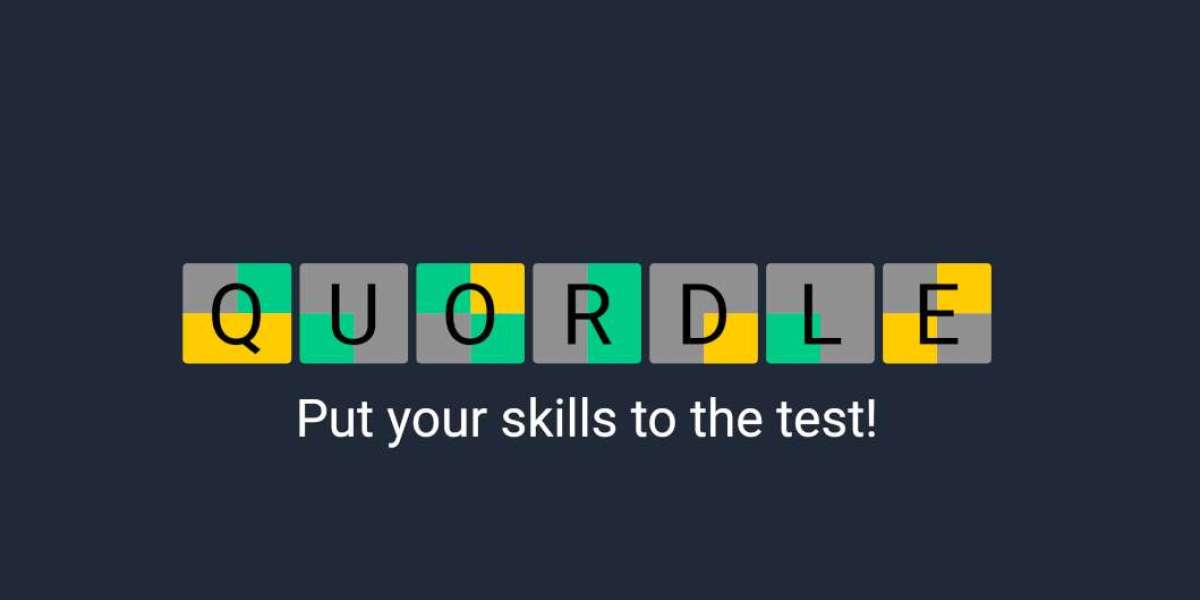Introduction To Quordle Today
If you've ever played Wordle, then Quordle might seem like the natural next step. But don’t be fooled—Quordle adds an entirely new layer of complexity. As a game developer, I can tell you, designing something like Quordle is all about balancing challenge and accessibility, and that’s what makes it such a brilliant evolution of the word puzzle genre.
In Quordle, you’re not just solving one puzzle. You’re solving four at the same time. It’s a game that taps into problem-solving, pattern recognition, and decision-making under pressure—all within a limited number of guesses. It’s like solving a crossword puzzle where you don’t have the clues upfront. The thrill? Every guess matters. Let’s break it down, step by step, and see how you can master Quordle with a blend of smart strategy, practice, and a bit of game developer insight.
Understanding Rules & Objective Of the Game
If you’ve ever played Wordle, Quordle rules will feel familiar—with a twist. The key difference is that instead of solving one five-letter word, you’re solving four simultaneously.
Key Points:
You start with nine guesses.
Each guess applies to all four grids, meaning you have to consider how your guess will affect all four words at once.
Feedback is delivered in the same way as Wordle:
Green means the letter is in the correct spot.
Yellow means the letter is in the wrong spot.
Gray means the letter isn’t in the word at all.
The challenge lies in your ability to track four different word solutions while managing limited guesses. As a game developer, the goal was likely to keep the core elements familiar but ramp up the difficulty to maintain player interest.
Tips For Finding Words in Quordle Today
So, how do you approach a game that feels like a high-pressure test of memory and logic? Here’s the approach I’ve developed from analyzing both player behavior and game design principles.
1. Start With a Word That Covers Lots of Ground
In game design, the first move is often the most important. You want to maximize your early guesses to gather information quickly. A strong opener is critical to set up the rest of the game.
I recommend words like “SLATE,” “CRANE,” or “AUDIO”—they each hit a combination of high-frequency consonants and vowels, giving you a broad view of the grid. Think of it like a game developer testing how elements work together early in development: it sets the stage for what’s to come.
2. Prioritize Information Over Perfection Early On
Here’s a pro tip: Don’t aim to solve one word immediately. Your first few guesses should be about gathering data, not necessarily solving all four puzzles at once. Use words like:
“TONER”
“GRIND”
“PILOT”
These words help you identify both vowels and consonants, and allow you to spot which letters appear in multiple grids. In game development, this is like testing different game mechanics to see which one works best.
3. Focus on Patterns
As the game progresses, start to look for letter patterns that can apply to multiple grids. This is where experience as a player comes into play. You’ll begin recognizing which words tend to work well together and which letters typically pop up. Quordle isn’t just about making random guesses—it’s about spotting trends and learning from past feedback.
How To Improve Your Speed & Accuracy
In my experience, when you’re testing a game like Quordle, the speed at which players solve puzzles can be as important as accuracy. Improving your reaction time, while still being strategic, is key to mastering the game. And here’s the thing—getting faster doesn’t mean you have to sacrifice accuracy. It’s about finding the right rhythm.
1. Practice Is Key
As a developer, I know that no one gets good at a game without putting in the time. In Quordle, daily practice is the best way to build that muscle memory and improve both your speed and accuracy. The more puzzles you solve, the better you’ll get at spotting letter patterns and predicting words.
2. Refine Your Word Bank
By this point, you should have a mental list of words you can turn to when you’re stuck. As a developer, I can tell you that providing players with tools—like an internal "word bank"—can be the difference between getting stuck and finding a solution. Words like "STARE," "MOUSE," "PITCH," or "VENDOR" should become second nature to you, speeding up your decision-making process.
3. Master the Pause
Sometimes, speed is about slowing down for a moment. Pausing gives your brain a chance to process the clues you've gathered so far. In game design, we build in moments of pause to give players time to reflect. It’s counterintuitive, but stepping back can often help you find the solution much faster.
Advanced Techniques For Solving Difficult Puzzles
Now that you're familiar with the basics, it’s time to take things to the next level. As a developer, creating advanced strategies often involves layering multiple systems of knowledge, and Quordle rewards you for doing just that.
1. Cross-Reference Letter Positions
One of my favorite advanced techniques comes straight from game design: cross-referencing. If a letter is green in one grid and yellow in another, that’s a golden clue for how those letters interact. Start thinking about how your guesses impact more than one grid at a time, and the puzzle-solving process becomes much more efficient.
2. Use Known Words to Solve Unknowns
Here’s where the magic happens: If you solve one puzzle, use the solution to test potential letters in other grids. For example, if you know "VANISH" is the answer in one grid, the "V" or "A" may help inform your next guess in another puzzle. This is what I’d call a multitasking technique that really takes Quordle to the next level.
3. Save Easy Grids for Last
Sometimes, the best move is the counterintuitive one: Leave the easy grid for last. By doing this, you ensure that you’ve gathered all the information you need to finish it with a high level of certainty.
Benefits Of Playing Quordle Today
As a game developer, I can tell you that games like Quordle aren’t just fun—they offer real cognitive benefits. By practicing regularly, you're improving your problem-solving skills, memory, and ability to think critically under pressure.
✅ Improves Vocabulary
You’ll quickly start recognizing letter combinations and patterns that were once foreign to you. It’s a fantastic exercise for vocabulary expansion.
✅ Boosts Cognitive Function
Each round is an exercise in logic, pattern recognition, and memory. These skills transfer well beyond the game itself, into areas like work, school, or creative problem solving.
FAQs - Quordle Today
Q: Can I always win Quordle?
While there are many strategies to improve your chances, there’s no guaranteed win. However, the more you play, the better your chances get!
Q: Why is Quordle so addictive?
Part of Quordle’s charm is its balance of difficulty and accessibility. It’s a tough challenge, but it’s never frustrating, and each success feels rewarding.
Q: How do I improve my chances of winning daily?
Stick to your word bank, use each guess to gather information, and prioritize guessing high-frequency vowels and consonants early on.
Conclusion
Mastering Quordle is more than just a test of your word knowledge. It's a cognitive workout, an exercise in strategy, and a fun way to test how quickly your brain can adapt under pressure.
As you hone your skills, remember—each game is an opportunity to sharpen your thinking and improve. With a few smart strategies and regular practice, you’ll be well on your way to Quordle mastery. Now, go ahead—dive into today’s puzzle and show Quordle who’s boss!



